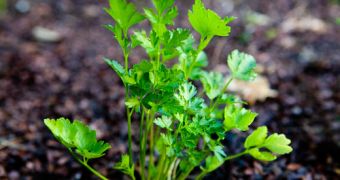A new research carried out by a team of scientists working with the Ohio State University has revealed that the Mediterranean diet might help fight cancer by compelling cancer cells to become “mortal.”
The specialists explain that, as several previous investigations have shown, cancer cells thrive thanks to their having figured out a way to inhibit a process that would cause them to die as part of a regular cycle.
By the looks of it, a compound commonly found in plant-based foods that are part and parcel of a Mediterranean diet is fairly efficient in terms of reprogramming cancer cells and thus causing them to die according to schedule.
The compound now said to strip cancer cells of their ability to escape death is referred to by the scientific community as apigenin.
The official website for the Ohio State University says that food such as parsley, celery and chamomile tea are considerably rich in apigenin, but that this compound can also be found in many other fruits and vegetables.
“In its relationship with a set of specific proteins, apigenin re-establishes the normal profile in cancer cells,” study co-lead author Andrea Doseff said.
“We think this can have great value clinically as a potential cancer-prevention strategy,” the researcher further argued.
As Andrea Doseff explains, roughly 80% of all cancers need be linked to abnormal splicing (the joining or insertion of segments of DNA or RNA) patterns.
Apigening reportedly works by normalizing splicing, hence its being likely to both cause cancer cells to die in a programmed manner and make cancer cells more susceptible to the effects of chemotherapy.
“The nutrient eliminated the splicing form that inhibited cell death. Thus, this suggests that when we eat healthfully, we are actually promoting more normal splice forms inside the cells in our bodies,” said researcher summed up the findings of this investigation.
Presently, Andrea Doseff and several other scientists are carrying out a series of experiments on mice.
Their goal is to see whether food that contains certain doses of this compound can in fact have an anti-cancer effect.
A detailed account of this investigation into how apigenin helps make cancer cells normal is made available to the public in the journal Proceedings of the National Academy of Sciences.

 14 DAY TRIAL //
14 DAY TRIAL //